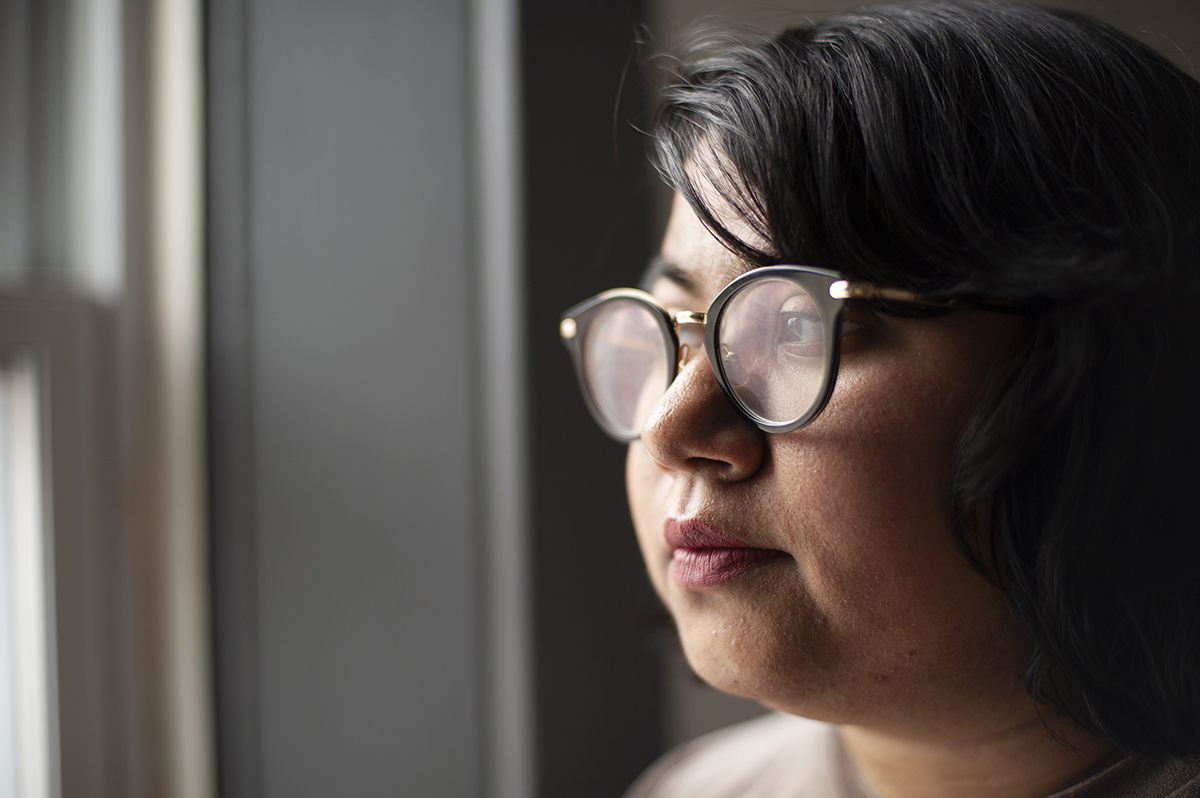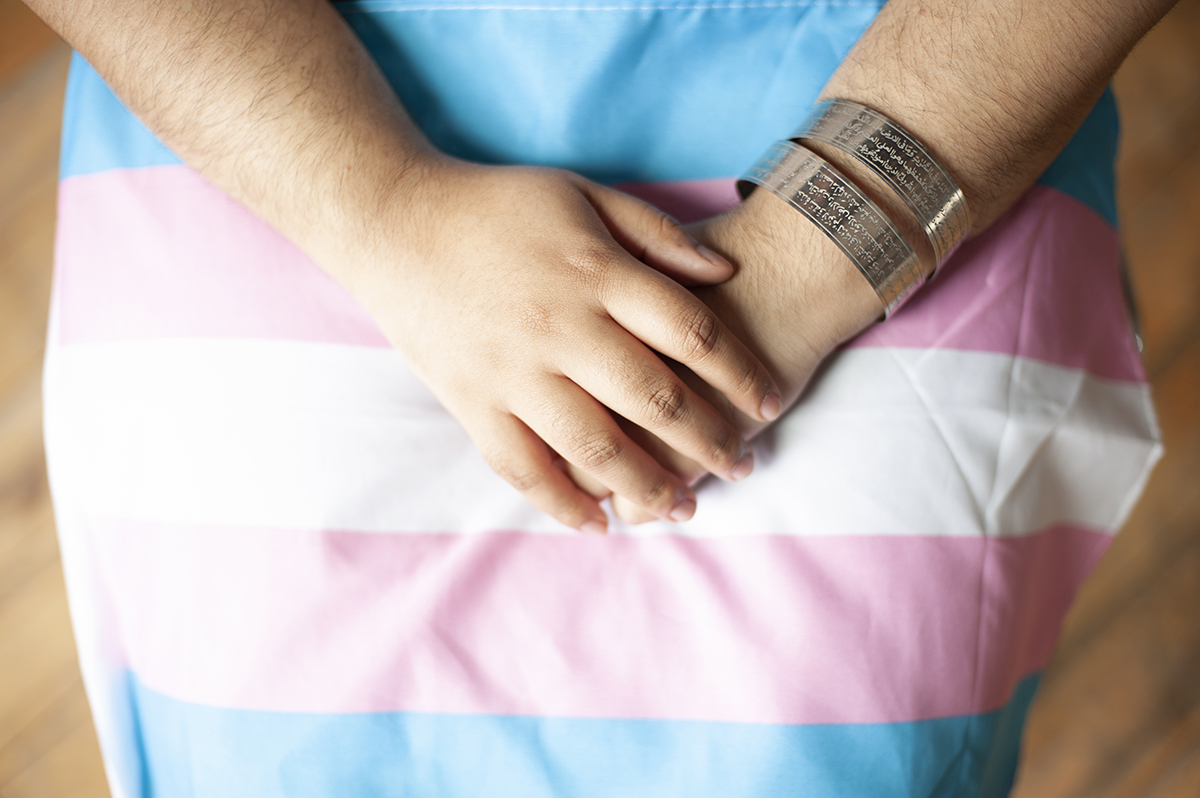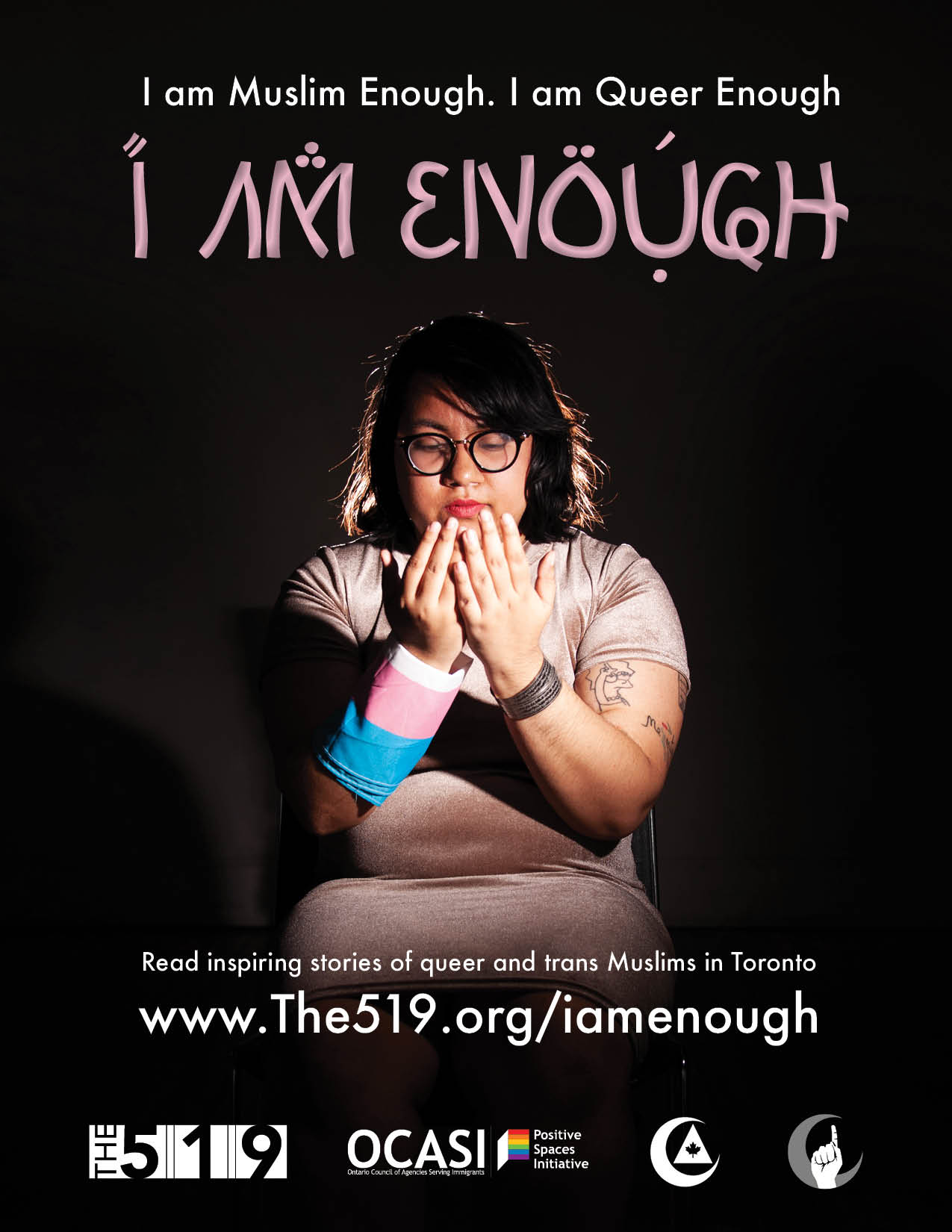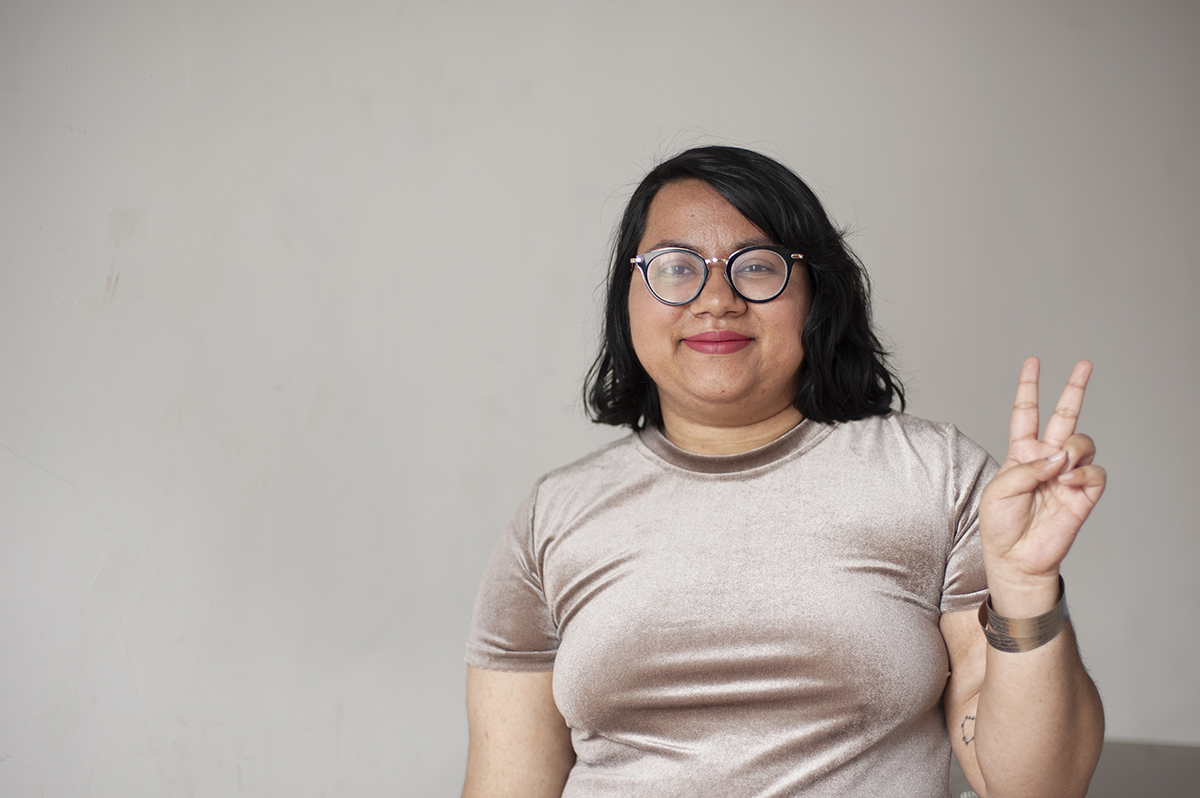It was a year ago Maiesha made a short documentary about two queer Muslims in a loving relationship – living a, regular, ‘normal’ life. The ensuing reactions and responses to that film opened Maiesha’s eyes to the selective perspectives people hold about queerness and Islam.
Maiesha was born in Bangladesh and arrived in Canada at the age of 5. They recall being a very talkative and extroverted child up until middle school.
As their personality evolved and they became more introspective, they re-discovered their voice in art and went on to pursue film as a career. As someone who was racialized, Muslim, and queer, their parents were skeptical about their success in this chosen career. Until they saw their work and knew that they were destined for success despite the barriers that might come their way.
Maiesha’s first item of choice to express their queer/trans/non-binary identity was a trans flag. They had bought it last year for Trans March, and later took it home to display in their bedroom. Although their family has been progressively accepting of their identity, supportive in silent and sometimes endearing ways, they don’t really talk about it.
Their other item of choice to represent their Muslim identity was a set of silver bracelets inscribed with Quranic verses. Those bracelets were given to their mother by their grandfather, a loving presence in their life. A few months ago, their mother had passed on the bracelets to Maiesha.
They used to avoid wearing the bracelets or any overtly religious symbols.
Maiesha always had a non-traditional relationship with religion. They grew up in a Muslim home but remained curious about exploring other faiths as well. An impactful piece of advice that led them further on to this path of exploration came from their father.
That openness coming from a Muslim parent made them open up to exploring Islam further.
This belief reflected well in Maiesha’s documentary project about a queer Muslim couple.
They recalled the time when they presented a rough cut to their class. Many of the reactions they received were of frustration and even anger. Representation of Islam in the context of queer communities in a loving and non-controversial way was something some people found unpalatable. One fellow student even told them to go back to the drawing board and do their research.
During their time at the university, Maiesha also revived and led an LGBT Muslim group. They continued running that group until recently. They grew into that role and loved being a leader – loved showing up, not just for themselves but also for others.
Although there was a lot of love in that group, they also had to deal with hostility on campus, including a time when their group’s posters were vandalized.
Such instances of casual hostility – whether motivated by homophobia, transphobia, or Islamophobia – often come with people’s expectations of them to either renounce faith to be queer or reject queerness to be true to the interpretation of their faith.
Maiesha came out in High School, a year after attending a panel discussion about queer Muslim identities. It was the first time they had heard the words queer and Muslim together, and seen people owning it in such a natural way.
Maiesha believes that visibility and support are important instruments of change. With this understanding, they have been focusing more and more on supporting other queer and trans Muslims.
Storytelling, design, and photography by Soofia Mahmood, The 519






